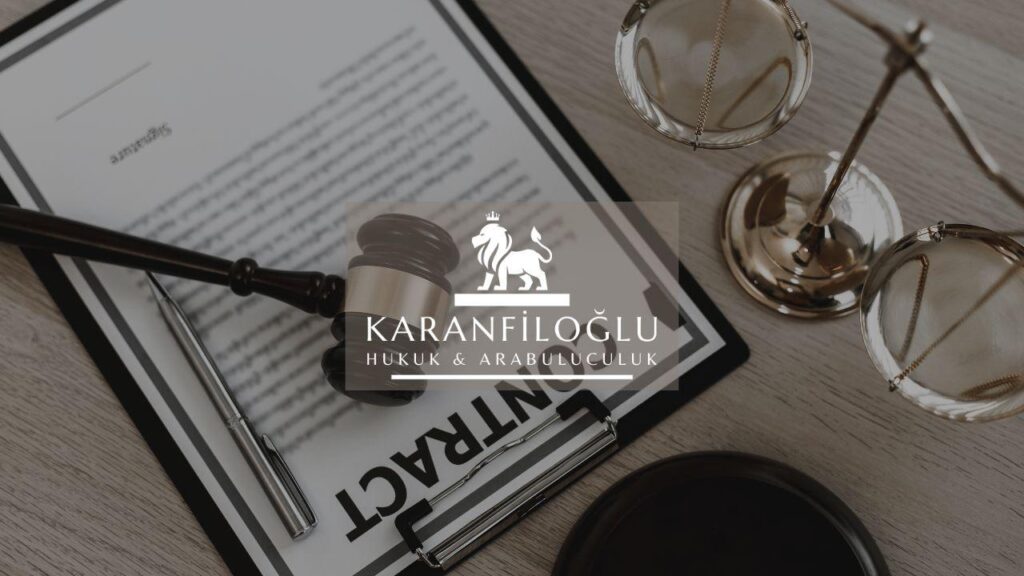Workplace bullying is a critical issue that impacts the well-being of employees and the productivity of organizations in Turkey. The Turkish Labor Law No. 4857 and the Occupational Health and Safety Law No. 6331 provide a comprehensive legal framework to combat such behavior. According to Article 24 of the Labor Law, employees who are subjected to workplace bullying may terminate their employment contract with just cause, thus preserving their rights to severance pay. Furthermore, under Article 13 of the Occupational Health and Safety Law, employers are obligated to ensure a safe working environment and take necessary measures to prevent psychological harassment. Addressing workplace bullying promptly and effectively is crucial, and seeking legal assistance from experienced professionals, such as the Karanfiloglu Law Office, can help employees navigate their rights and pursue appropriate remedies for their situation.
Identifying and Recognizing Workplace Bullying
Recognizing workplace bullying is the first step toward addressing this pervasive issue. Workplace bullying can manifest in various forms such as verbal abuse, unwarranted criticism, exclusion, and undermining an individual’s work or reputation. According to Article 417 of the Turkish Code of Obligations, every employer is obligated to protect the personality of employees in their establishment. Psychological harassment, also known as ‘mobbing,’ is specifically addressed under Article 13 of the Occupational Health and Safety Law No. 6331, which mandates employers to take necessary precautions to safeguard employees’ mental health. Identifying these behaviors early can prevent escalation and foster a healthier work environment. If you suspect that you are a victim of workplace bullying, it is crucial to document incidents meticulously and seek advice from legal experts, such as those at Karanfiloglu Law Office, who can guide you on the steps to protect your rights.
Workplace bullying often thrives in environments where power imbalances are prevalent and organizational culture fails to address such issues. It is essential for employers and employees alike to be aware of the common signs of bullying, including constant criticism, isolation from colleagues, and the imposition of unreasonable workloads. Article 417 of the Turkish Code of Obligations further emphasizes that employers must respect the dignity of employees and take measures to prevent them from being subjected to recurring harmful behavior. Early intervention and consistent enforcement of anti-bullying policies in the workplace can mitigate the harmful effects of bullying. Legal provisions such as these empower employees to take action and hold employers accountable, reducing the prevalence of bullying in Turkish workplaces. Consulting with legal professionals at Karanfiloglu Law Office can provide invaluable support in identifying and addressing workplace bullying effectively.
Addressing workplace bullying requires a proactive approach from both employees and employers. Employees should feel empowered to report any incidents of bullying through the appropriate channels, such as human resources or dedicated complaint systems. Article 18 of the Turkish Labor Law No. 4857 provides protection against unjust termination for employees who have reported bullying or harassment, emphasizing the importance of a safe reporting environment. Employers, on the other hand, should implement comprehensive anti-bullying policies and conduct regular training to ensure that all staff members are aware of the signs and repercussions of bullying. Additionally, establishing a zero-tolerance stance on bullying and creating a supportive workplace culture can significantly reduce instances of harassment. Seeking legal guidance from experienced firms like Karanfiloglu Law Office can assist in formulating effective anti-bullying strategies and opting for legal recourses if necessary, ensuring a harmonious and productive work environment.
Legal Rights and Protections for Employees
Employees in Turkey are well-protected against workplace bullying under various legal provisions. Article 417 of the Turkish Code of Obligations mandates employers to protect employees’ personality rights, ensuring a non-hostile working environment. In addition, Article 5 of the Turkish Labor Law No. 4857 expressly prohibits discrimination among employees, which can encompass acts of bullying. These laws grant employees the right to seek legal recourse if subjected to harassment, thereby enabling them to demand a safer work atmosphere and compensation for any damages incurred. For instance, employees can file a complaint with the Labor Courts or approach the Ombudsman Institution for resolution. By fostering a deep understanding of these legal protections, employees can empower themselves to take action against bullies in the workplace, ensuring their rights and dignity are safeguarded.
Another critical piece of legislation that provides support to employees facing workplace bullying is the Turkish Criminal Code. Article 117 of the Turkish Criminal Code criminalizes acts of coercion and mistreatment, which can be invoked in cases of severe bullying. Moreover, Article 125 of the Code penalizes insults, extending protection against any derogatory or demeaning remarks that may be directed at employees. It is worth noting that workers experiencing workplace bullying are not only entitled to pursue civil remedies but can also initiate criminal proceedings against their aggressors. Such dual avenues of redress mean that employees can seek justice through both the civil and criminal justice systems, thereby enhancing their ability to secure a safer and more respectful working environment. To effectively navigate these complex legal avenues, consulting with legal experts like those at Karanfiloglu Law Office can be invaluable in ensuring that victims’ rights and interests are comprehensively protected.
Employers also have specific responsibilities and obligations to prevent and address workplace bullying proactively. Under the Occupational Health and Safety Law No. 6331, particularly Article 4, employers are required to assess risks, including psychosocial risks, and implement necessary measures to mitigate such hazards. Failure to do so can result in administrative fines and sanctions, emphasizing the importance of maintaining a safe and respectful work environment. Moreover, the Regulation on Preventing and Combating Mobbing in the Workplace, which came into effect in 2011, provides detailed guidelines for employers on recognizing, preventing, and addressing bullying incidents. By following these legal requirements and standards, employers can foster a healthier workplace culture, reduce legal liabilities, and promote overall employee well-being. For comprehensive guidance and to ensure compliance with these regulations, employers can benefit from consulting specialized legal services like those offered by Karanfiloglu Law Office.
Steps to Take When Facing Workplace Bullying
The first step when facing workplace bullying is to document every incident meticulously. Keeping a detailed record of each occurrence, including dates, times, locations, and any witnesses, is crucial for building a strong case. Additionally, any written communication or evidence that demonstrates the bullying behavior, such as emails or text messages, should be preserved. This documentation will be essential if you decide to file a formal complaint with your employer or take legal action. According to Turkish Labor Law No. 4857, employees have the right to seek protection from workplace bullying and can utilize this evidence to substantiate their claims. Furthermore, having witnesses who can corroborate your account of events can significantly strengthen your position.
Once you have gathered sufficient evidence, the next step is to report the bullying to the appropriate authority within your organization. This typically involves submitting a formal complaint to your organization’s human resources department or to a designated workplace harassment officer, as stipulated under Article 18 of the Turkish Labor Law No. 4857. Ensure that your complaint is detailed and includes all the documented incidents of bullying, as well as any collected evidence. Employers are legally required to investigate all such complaints and take necessary actions to address the issue. Failing to handle these complaints can expose the employer to legal liabilities under Article 77 of the Occupational Health and Safety Law No. 6331, which mandates that employers provide a safe working environment, free from psychological violence and harassment. Seeking counsel from legal professionals, such as those at Karanfiloglu Law Office, can provide the necessary guidance to ensure that your complaint is properly handled and your rights are protected.
If the internal complaint process does not yield satisfactory results, the next step is to seek external legal redress. Under Article 5 of the Turkish Labor Law No. 4857, employees have the right to file a complaint with the Provincial Directorate of Labor and Employment Agency, which will initiate an investigation into the reported bullying incidents. Additionally, affected employees can bring their case before the labor courts, seeking remedies such as compensation for psychological damages, reparation for any career impacts, and reinstatement if they were unjustly dismissed. Consulting with legal experts, like those at Karanfiloglu Law Office, can provide valuable assistance in navigating these legal procedures to ensure that justice is served. They can help in gathering further evidence, representing you in court or administrative hearings, and advocating for your rights to create a safer work environment.
Disclaimer: This article is for general informational purposes only and you are strongly advised to consult a legal professional to evaluate your personal situation. No liability is accepted that may arise from the use of the information in this article.







